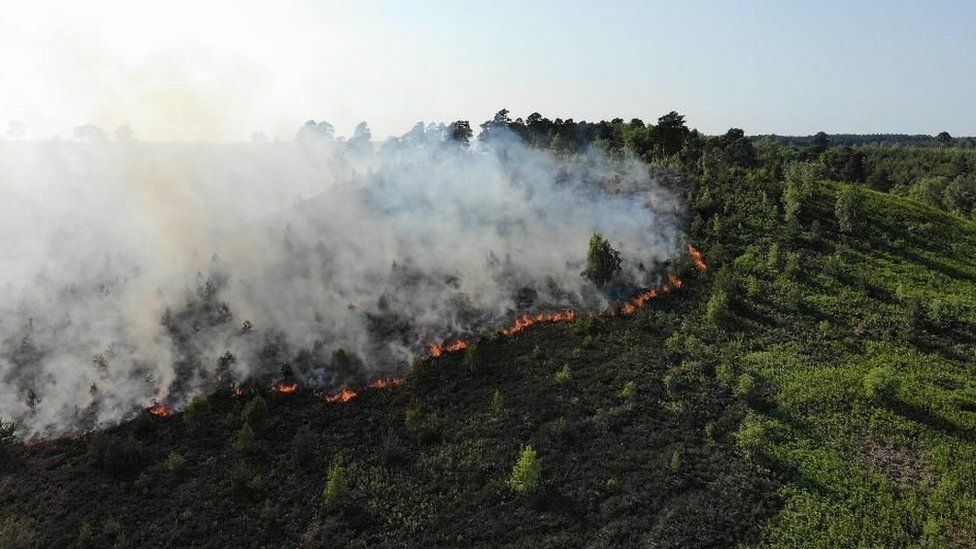Firefighters train in global wildfire skills amid UK climate change risk

As climate change increases the risk of wildfires in the UK, fire crews are adopting new techniques learned from global wildfire hotspots. Last year’s heatwaves resulted in thousands of fires, and hundreds of grass fires have already occurred this year. Fire chiefs are focusing on expanding the number of specialist teams trained in “burn suppression” techniques, which involve the deliberate burning of land to contain fires. Currently, only five UK units specialise in this technique.
Chief Fire Officer Paul Hedley, wildfire lead for the National Fire Chiefs Council (NFCC), stated that the risk of major wildfires in the UK is growing. He said, “All of this learning from international partners, who are probably still some years ahead of us, is a very sensible way of trying to get us ahead of the curve.” A UK-wide training programme is expected to be established as part of a national action plan in response to the lessons learned from last year’s fires.
Surrey Fire and Rescue is one of the services leading the way, having already dealt with over 80 wildfires this year. The most recent wildfire occurred last month at Frensham Common, near Farnham, a popular beauty spot. The cause of the 10-hectare fire is still unknown, but the damage is evident. The once-rich heathland, home to rare species like sand lizards, is now desolate.
Howard Inns, trustee of the Amphibian and Reptile Conservation charity, explained the long-term effects of such fires: “Whilst we can save some of these animals that survived the fire, we lose an awful lot and we lose all that biodiversity. It takes years, if not decades, for that to come back again.”
Matt Oakley, a fire investigations officer for Surrey Fire and Rescue, is one of the UK’s national wildfire tactical advisors. He believes that the techniques used in hotspots such as France and South Africa will be crucial in the UK in the coming years. Oakley said, “Our climate is changing – it’s changing beyond recognition. What used to be a nine to 12-year cycle, this is every year now. We are heading towards a northern Mediterranean climate in the southeast of England within the next decade and this will be business as usual day in, day out.”
The Fire Brigades Union, however, argues that new training and techniques alone are not sufficient to address the rising challenges of climate change. They call for more crews and funding from the government after years of cuts that have led to the loss of thousands of firefighters since 2010. Matt Wrack, the Fire Brigades Union’s general secretary, said, “Rising temperatures and the systematic underfunding of the fire and rescue service are a recipe for destruction.”
The government claims to be providing fire and rescue authorities with around US$3.6bn this year, and each authority can decide how to allocate the funds. A spokesperson stated, “The Home Office works closely with the National Fire Chiefs Council and England and Wales Wildfire Forum to continue to improve our response to wildfires and mitigate them.”
Latest Thailand News
Follow The Thaiger on Google News:


























